Over the weekend, The AFR’s John Kehoe defended the Reserve Bank of Australia’s (RBA) “straight talking”, saying that it is “needed to cut through the noise” in the “age of political spin and social media echo chambers”.
Kehoe specifically mentioned RBA governor Michele Bullock’s statements that spending on things like hairdressers and dentists shows that demand is too strong and is helping to drive inflation.
“Bullock is right. My Canberra barber has put up his prices by 50% over the past two years”, Kehoe wrote.
“Dental service prices rose 4.9% in the year to September 30, up from 3.6% in the June quarter”.
“Businesses can only pass on these higher costs and protect their profit margins if consumer demand is sufficiently strong”.
“Moreover, critics point out that per capita consumer spending is going backwards due to interest rate rises. This is true”.
“But aggregate spending is still rising moderately because of high population growth from the addition of about 500,000 migrants over the past year”.
“So, while individuals are pulling back and feeling the pinch, total spending is still at a relatively elevated level compared with the economy’s supply potential”, Kehoe argued.
I fully agree in principle that we should support “straight talking” from the RBA.
However, unlike Kehoe, I believe that Michele Bullock’s comments were way off target.
Kehoe explicitly admitted that the Albanese government’s record immigration has inflated aggregate demand at the same time as individual Australians are cutting back on their spending.
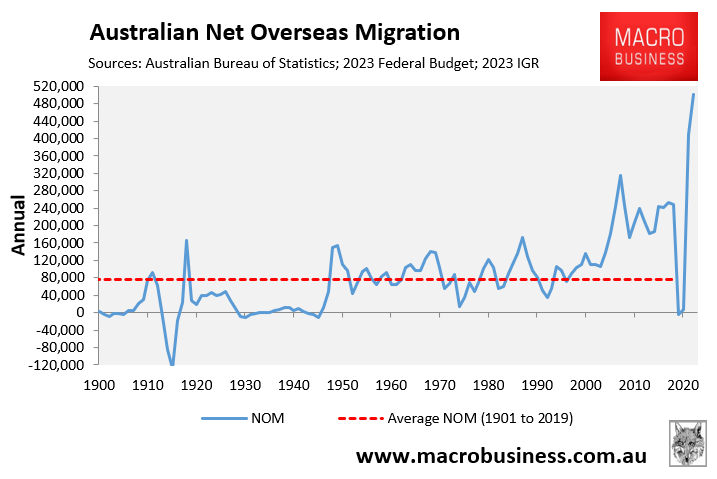
It is obviously far more difficult for the RBA to slow aggregate demand via rate hikes, which only directly impact around one-third of owner-occupier Australians carrying mortgages, when the population is growing at an extraordinary rate of 2.6%:
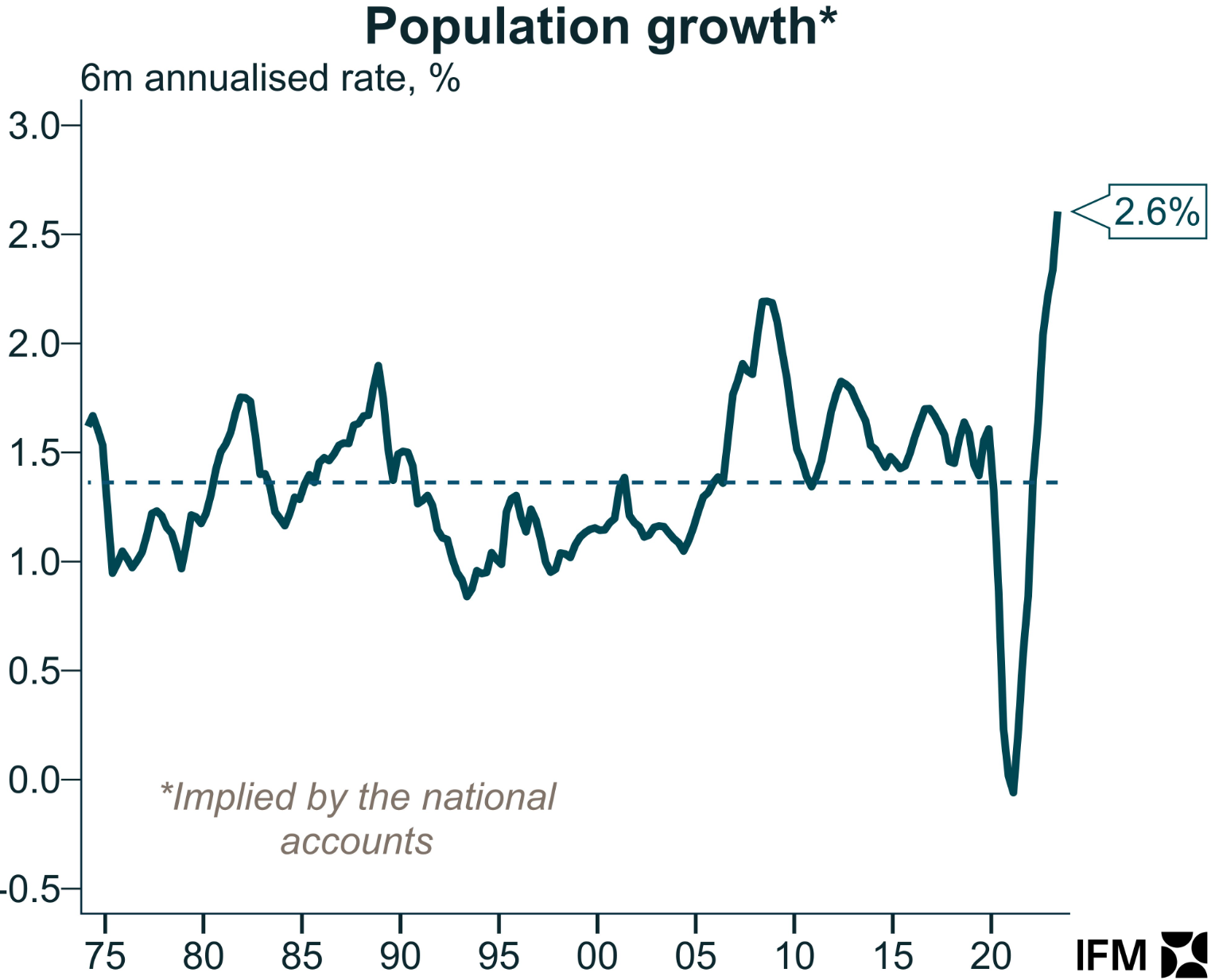
Source: Alex Joiner
Therefore, why hasn’t the RBA governor used “straight talk” to demand that the government lower immigration? This would be far more useful than attacking excessive spending on essentials like dentistry and haircuts.
Instead, Michele Bullock did the opposite and effectively defended the immigration ponzi scheme by stating that it “is a good thing for Australia” and that it is “not clear cut” that immigration is “adding heaps” to inflation, despite clear evidence to the contrary.
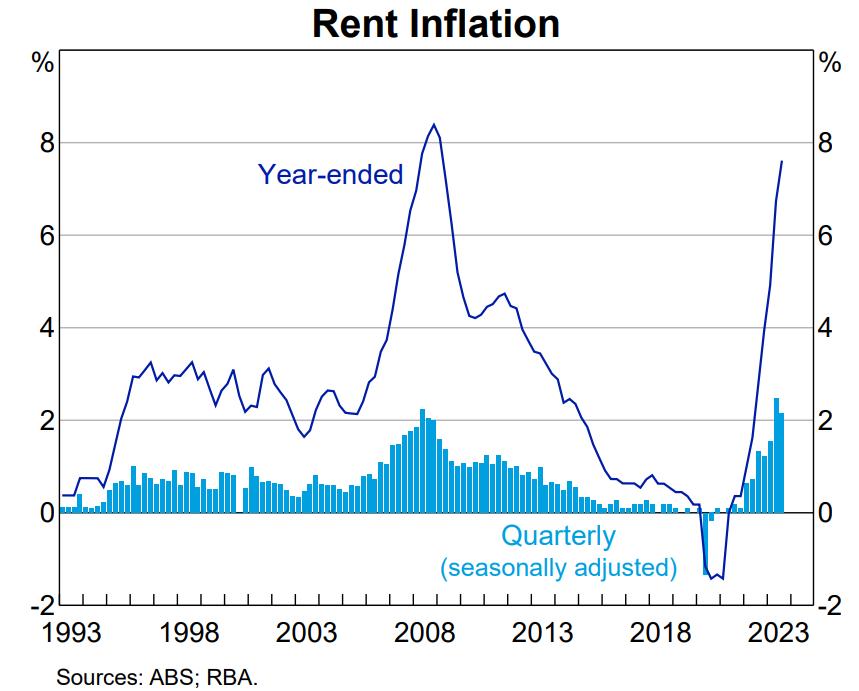
Moreover, why hasn’t Michele Bullock admitted that older Australians not impacted by soaring mortgage rates or rents are lifting consumption and juicing demand?
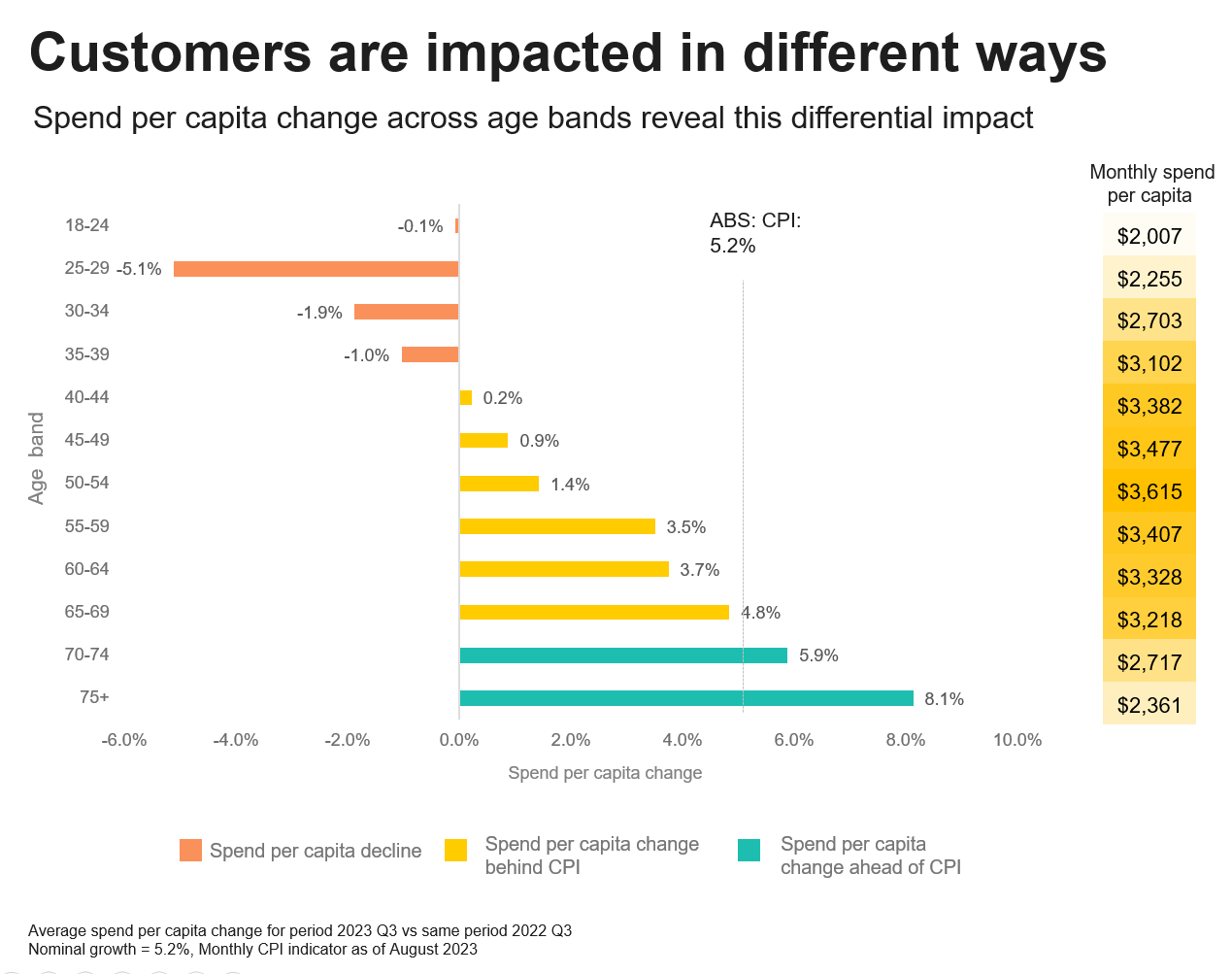
Source: CBA
The green bars above show that Australians aged 70 or above lifted their spending by more than the rate of inflation in the year to September 2023, whereas younger Australians aged under 40 cut their spending in absolute terms (orange bars), and everyone else increased their spending by less than the rate of inflation (yellow bars).
Australians aged between 65 and 74 also spent more in September than Australians aged 30-34.
Worse, older Australians are spending the most on discretionary items, whereas younger Australians are cutting back hard on both discretionary and essential items:
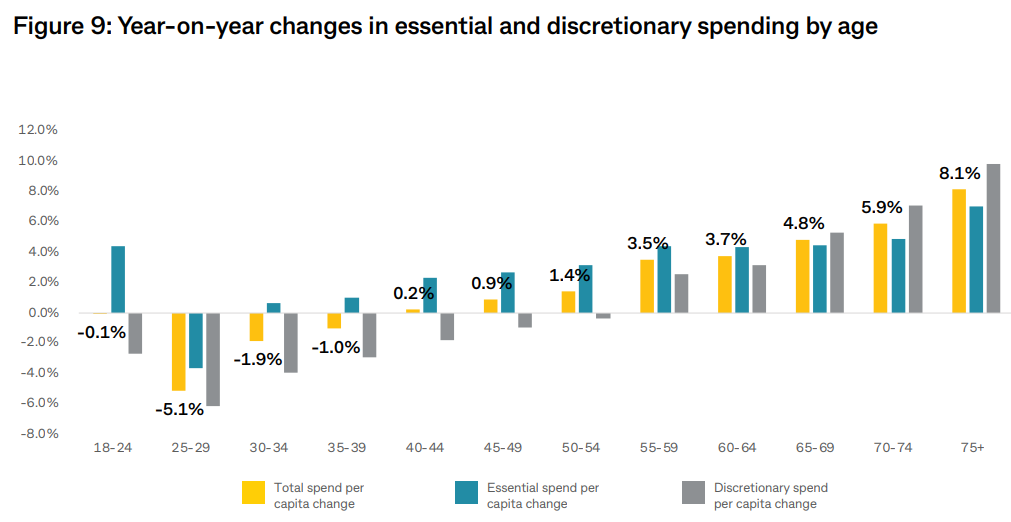
Source: CBA
Perversely, the RBA has hiked interest rates to curb the demand arising from record levels of immigration and the spending from older Australians, and the impact has been borne by younger Australians with mortgages, who have already cut back hard on their spending.
The purportedly “straight talking” RBA governor should bluntly tell the Albanese government that it has only one inflation-fighting tool (interest rates) that disproportionately impacts just one-third of Australians carrying owner-occupier mortgages.
The governor should also demand that the federal government cease fanning demand and working at cross-purposes to the RBA by running the largest immigration program in Australia’s history.
That’s what a genuinely “straight talking” RBA governor would do. They would be honest about the situation.

